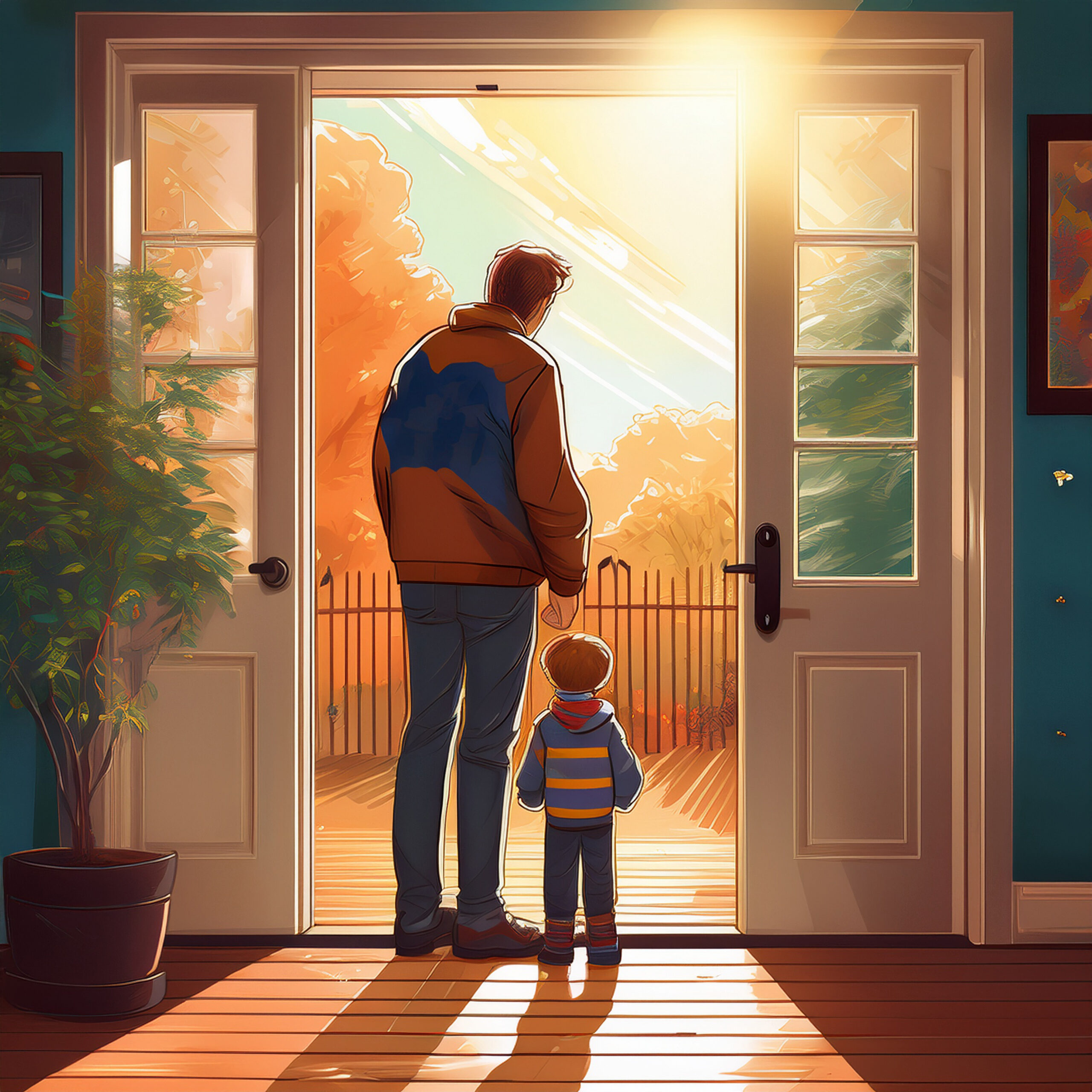If you’ve ever sat at your kitchen table, coffee cooling in your hands, and felt your heart skip at the sound of a door unlatching, you’ll understand what families of autistic children live with every day. Wandering isn’t some abstract risk or a line in a research paper. It’s a daily, tangible fear that shapes how families move through the world.
The Numbers Behind the Worry
Nearly half of autistic children will try to leave a safe place at least once. That’s not just a figure; it’s a reality that means many parents are always on edge. In 2024, the National Center for Missing & Exploited Children received hundreds of calls about missing autistic kids. Seventy-four percent were found within a week, but the fear doesn’t end there. Drowning is the leading cause of accidental death for autistic children who wander.
These numbers are more than statistics. They represent real families, real communities, and real children who are sometimes misunderstood by those around them. A 2016 study found that about half of caregivers said their autistic child had wandered at least once after turning four, and a quarter said it had happened in the past year. This isn’t isolated. It’s happening in neighborhoods everywhere.
Why Wandering Happens
If you ask a parent why their child wanders, you’ll get a dozen different answers. Some kids are overwhelmed by lights, noise, or crowds and just need to escape. Others are drawn to something they love, like water or a favorite playground. For some, it’s about movement, curiosity, or simply a need to explore.
One mother described her son as “greased lightning,” saying, “I couldn’t take my eyes off him for an instant or he’d disappear, in malls, supermarkets, or in any public space”. That constant vigilance is exhausting, but it’s the reality for many families. The reasons for wandering are as varied as the children themselves. Sometimes, it’s not about distress at all, but about pursuing something joyful or interesting.
The Toll on Families
Living with the risk of wandering changes everything. Families skip gatherings, avoid busy parks, and sometimes feel cut off from neighbors who don’t understand. The emotional toll is heavy. One parent told me, “You never really sleep. Even when they’re in bed, you’re listening for any sound that means a door is opening.”
Brittany Bledsoe, whose son Ace drowned in 2024 after wandering, shared her story in a Maryland Autism Coalition announcement. Her experience is a gut-wrenching reminder that these are not just stories—they’re real losses. In a study of parents, many described life as “living in a state of hyper-awareness,” always bracing for the next escape attempt. This kind of stress can strain marriages, friendships, and even jobs.
Support from family and friends can help, but not everyone has that safety net. Sometimes, just having someone who listens makes all the difference.
Real-Life Examples
Let me share two stories that hit close to home. In Georgia, a family’s non-speaking son slipped out during a backyard barbecue. Within minutes, he was found near a neighbor’s pond. Lori McIlwain of the National Autism Association says, “Those first few minutes, even seconds, are critical. We tell everyone to call 911 immediately. Search all nearby water first. You could save a life.”
This week, a scare unfolded in Dublin, California. An eight-year-old autistic boy, who is non-verbal, wandered away from Frederiksen Elementary during a summer school program. The community sprang into action. Police, neighbors, and even people who saw posts online joined the search. A resident spotted the boy walking past their home and called authorities. Thankfully, he was reunited with his family that afternoon. That’s the kind of outcome everyone hopes for, but it’s not always the case.
Strategies That Make a Difference
There’s no magic fix, but families have found ways to make wandering less likely or less dangerous:
- Secure pools with fences and self-latching gates.
- Alarms on doors and windows help, but they’re not foolproof.
- Some use GPS trackers or wearable devices, though technology can fail or be outgrown.
- Telling neighbors, teachers, and even the mail carrier about your child’s tendency to wander can make a huge difference. The more eyes, the better.
- Water safety is crucial. Parents often become experts in CPR and water rescue, and many teach their children to swim as soon as possible.
- Having a recent photo and a practiced emergency plan is a must. Some families even rehearse what to do if their child goes missing.
Most families use a mix of these strategies, always adapting as their child grows and changes.
What the Experts Say
Researchers and advocates agree that wandering is a serious and complex issue. Dr. Amy Daniels from Autism Speaks points out, “It’s important to see that the high frequency of wandering in affected children contrasts to relatively little wandering in their unaffected siblings.” In other words, this isn’t about inattentive parenting—it’s about the unique ways autism can affect behavior.
Experts also stress that more support and education are needed. “Families can develop safety plans for their children and work with teachers, police, and other members of the community to educate them about autism and their children’s risk of wandering,” Dr. Daniels adds.
Studies show that over half of autistic children who wander go missing long enough to cause real worry, and many incidents involve close calls with traffic or water. The reasons for wandering are varied—some children are trying to escape, others are seeking something they love. That’s why solutions need to be as individual as the children themselves.
A Community Effort
If you’re a neighbor, friend, or teacher, you can help. Sometimes, just being willing to step in or call for help can make all the difference. Community members who know what to watch for and how to respond can turn a scary situation into a safe reunion.
And for families living with this risk every day, you’re not alone. One parent told me, “You may be exhausted, but you are never defeated.” Building understanding and support can turn fear into action and hope.
Citations
- Disability Scoop. (2025, May 20). For many families of kids with autism, wandering is a constant worry. https://www.disabilityscoop.com/2025/05/20/for-many-families-of-kids-with-autism-wandering-is-a-constant-worry/31408/
- Autism Speaks. (n.d.). Wandering and autism: What we know and how to prevent it. https://www.autismspeaks.org/wandering-and-autism
- Kiely, B., Migdal, T. R., Vettam, S., & Adesman, A. (2016). Prevalence and correlates of elopement in a nationally representative sample of children with developmental disabilities in the United States. PLoS ONE, 11(2), e0148337. https://doi.org/10.1371/journal.pone.0148337
- National Center for Missing & Exploited Children. (2024). Annual report. https://www.missingkids.org/
- Maryland Autism Coalition. (2024). PSA: Remembering Ace Bledsoe. https://www.marylandautism.org/
- KTVU. (2025, June 17). Missing Dublin boy with autism found safe. https://www.ktvu.com/news/missing-dublin-boy-with-autism-found-safe
- Patch Dublin. (2025, June 17). Missing Dublin child with autism found safe. https://patch.com/california/dublin/missing-dublin-child-autism-found-safe
- NBC Bay Area. (2025, June 17). 8-year-old Dublin boy with autism found safe after search. https://www.nbcbayarea.com/news/local/east-bay/dublin-boy-autism-found-safe/3478928/










